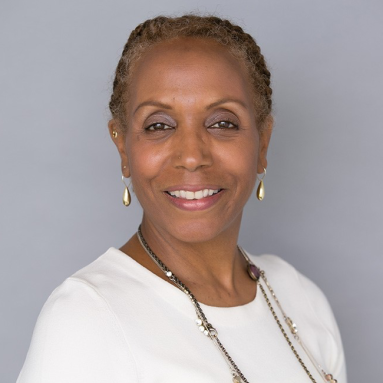Renée Smith-Maddox
Teaching Professor and Diversity Liaison
Focuses include teaching diversity, social innovation, and the capacity-building needs of nonprofit organizations.
Renée Smith-Maddox
Teaching Professor and Diversity Liaison
Focuses include teaching diversity, social innovation, and the capacity-building needs of nonprofit organizations.
Biography
Renee Smith-Maddox, Ph.D. is a teaching professor for the USC Suzanne Dworak-Peck School of Social Work (SDPSSW). She teaches graduate level courses on topics such as design thinking, social change and innovation, organizational development, and also serves as a mentor and advisor for capstone projects. Smith-Maddox has a passion for inspiring and empowering others to create social change.
She has more than 20 years of experience in the fields of nonprofit management, youth development, and college access. Smith-Maddox’s extensive knowledge in designing and managing diversity, equity, and inclusion (DEI) initiatives is informed by her experience as an education analyst in the NYC Board of Education, an executive director in the social sector, and a teacher researcher with inquiry-based research projects in K-12 schools.
She is an equity-minded practitioner, strategist, anti-trafficking advocate, and champion of empowerment initiatives for women and girls. As a venture catalyst, she is a thought partner, designer, planner, and facilitator committed to working with visionary leaders developing data collection tools for data driven interventions that advance equity and social justice.
At the school level, Smith-Maddox served as the inaugural associate dean for diversity, equity, and inclusion. In this capacity, she provided the leadership for conducting the school’s climate study and developing a DEI strategic plan relevant to the mission and vision of the school. For five years, Smith-Maddox co-chaired USC’s DEI Awareness Week, an annual professional learning event that provided 100 sessions focusing on a range of DEI-related training sessions for students, staff, faculty and alumni.
At the university level, she has chaired the Provost’s Diversity and Inclusion Council, led the DEI strategic planning process for 23 academic units, and co-chaired the Academic Senate’s Campus Climate Committee. Smith-Maddox has also conducted document analyses on hiring practices, faculty diversity, and DEI initiatives in higher education.
She also designs DEI Learning Labs as problem-solving spaces for leadership teams, administrators, students, staff, and faculty to address implicit bias and microaggressions and to reconceptualize a more diverse, just, inclusive, equitable classroom and work environment.
She holds a PhD in Social Policy and master’s degree in the Management of Human Services from Brandeis University, Heller School of Social Policy and Management. She earned her BA degree in psychology at Lincoln University (in PA).
Media
Education
Brandeis University
PhD 1994
Brandeis University
MMHS 1989
Lincoln University
BA 1976
Area of Expertise
- Advocacy and Social Justice
- Corporate Social Responsbility
- Race Gender and Class in Organization Processes
- Diversity
- Social Work Education
- Social Work
- Policy Evaluations
- Social Innovation
- Race Culture and Ethnicity
- Community Organizing and Engagement
Industry Experience
- Program Development
- Research
- Education/Learning
- Social Services
Articles & Publications
Preservice teacher inquiry: Creating a space to dialogue about becoming a social justice educator | Teaching and Teacher Education
Using critical race theory, paulo freire’s problem-posing method, and case study research to confront race and racism in education | Qualitative Inquiry
Educational aspirations of African American eighth graders | Race, Gender and Class
Availability
- Keynote
- Moderator
- Panelist
- Workshop



